The cat's out of the bag—idioms can be tricky, even for native English speakers.
24 Everyday Idioms You’re Getting Wrong
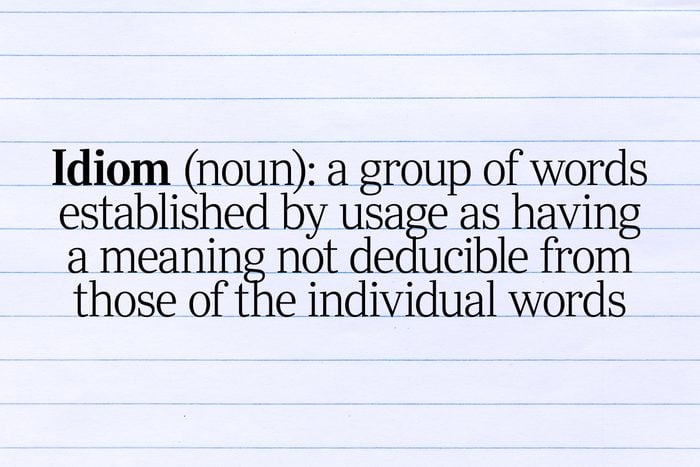
What is an idiom?
If you’re going to live in the United States or converse with English speakers, you’ll need to master our most commonly used idioms. What’s an idiom, you ask? Google.com’s handy dictionary offers the simplest explanation:
- Idiom (noun): a group of words established by usage as having a meaning not deducible from those of the individual words (e.g., rain cats and dogs, see the light).
The thing about idioms is that they’re often scrambled, mixed, and lost in translation! Here are some of the most common mix-ups. Don’t miss the grammar mistakes you could be making.
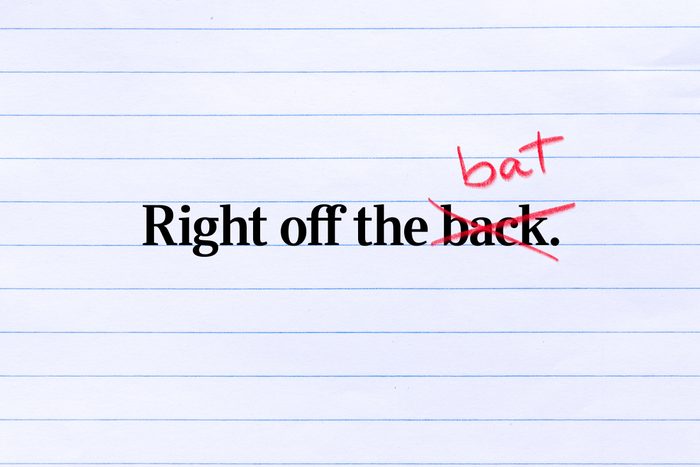
Bat vs. back
Right: Right off the bat
Wrong: Right off the back
What the idiom means: From the very beginning…
Watch out for the 26 words (and phrases) that trip almost everyone up.
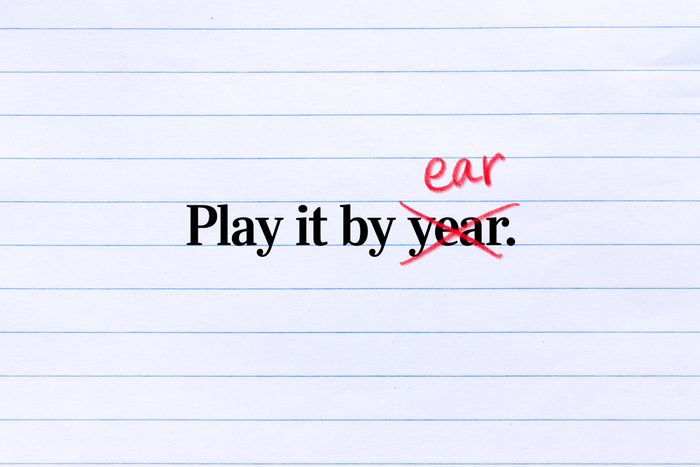
Ear vs. year
Right: Play it by ear
Wrong: Play it by year
What the idiom means: Don’t make solid plans; just see what unfolds.
Find out the common words that are mispronounced the most.
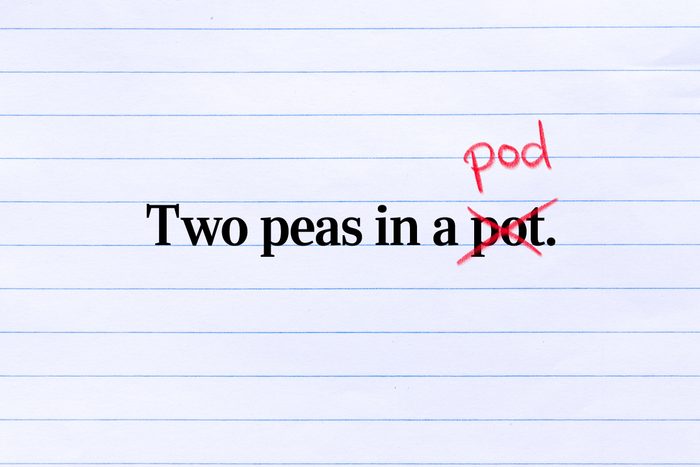
Pod vs. pot
Right: Two peas in a pod
Wrong: Two peas in a pot
What the idiom means: Two people who get along beautifully.
Here are 9 spelling mistakes that your spell check may not be catching.
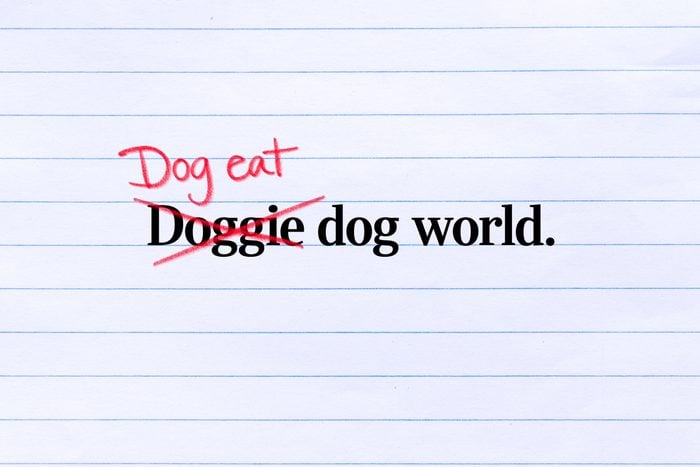
Dog eat vs. doggie
Right: Dog eat dog world
Wrong: Doggie dog world
What the idiom means: It’s rough out there! People can be competitive and aggressive.
Psst! Who’s “Pete” in the common phrase “for Pete’s sake”?
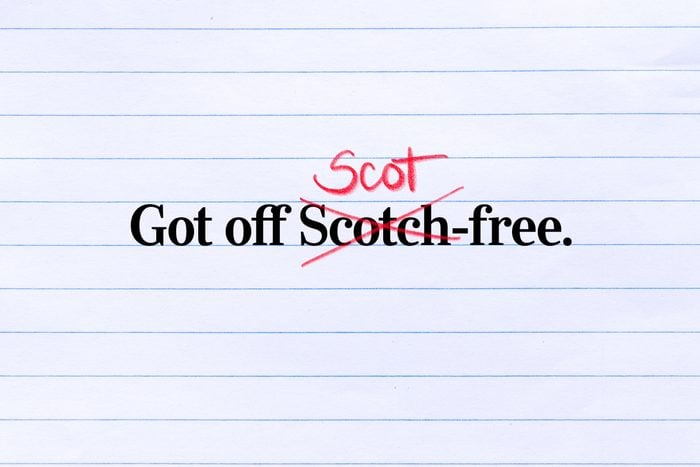
Scot vs. scotch
Right: Got off Scot-free
Wrong: Got off Scotch-free
What the idiom means: To get away with something.
These are the common sayings that kind of make no sense.
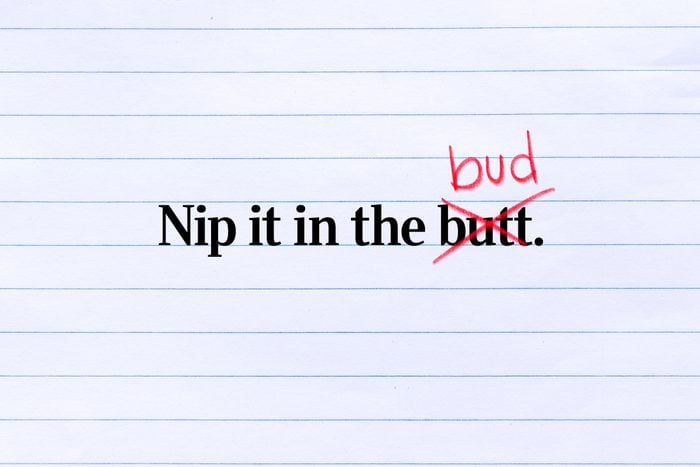
Bud vs. butt
Right: Nip it in the bud
Wrong: Nip it in the butt
What the idiom means: Stop something bad from becoming worse by catching it early.
Don’t be caught making these 7 punctuation mistakes.
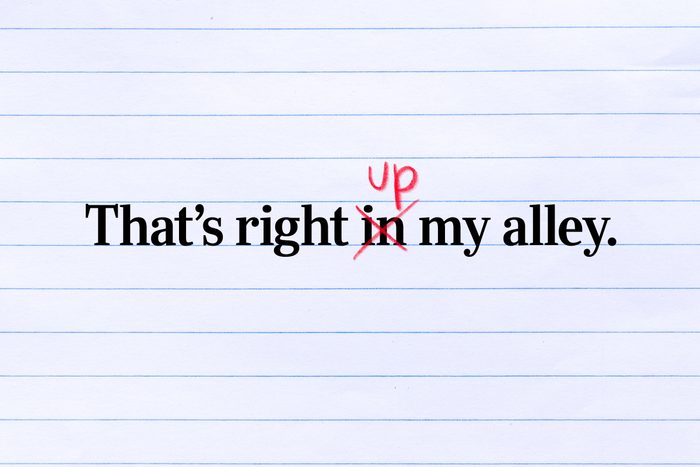
Up vs. in
Right: That’s right up my alley
Wrong: That’s right in my alley
What the idiom means: This is the kind of thing I like!
Always remember these 8 apostrophe rules to mistake-proof your grammar.
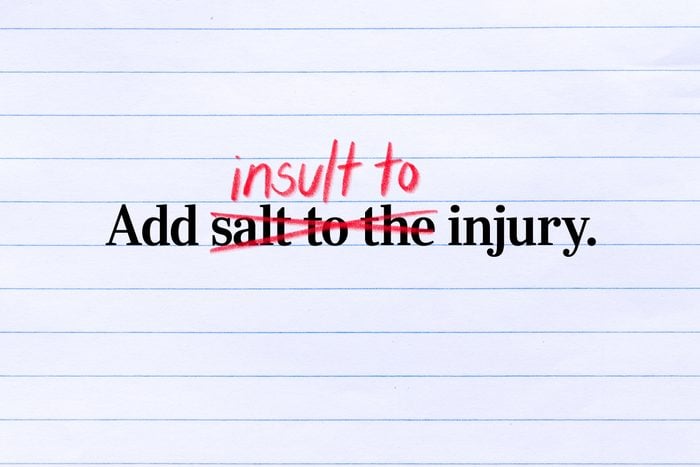
Insult vs. salt
Right: Add insult to injury
Wrong: Add salt to the injury
What the idiom means: To make a bad situation worse.
These are the plural words that sound completely wrong—but aren’t!
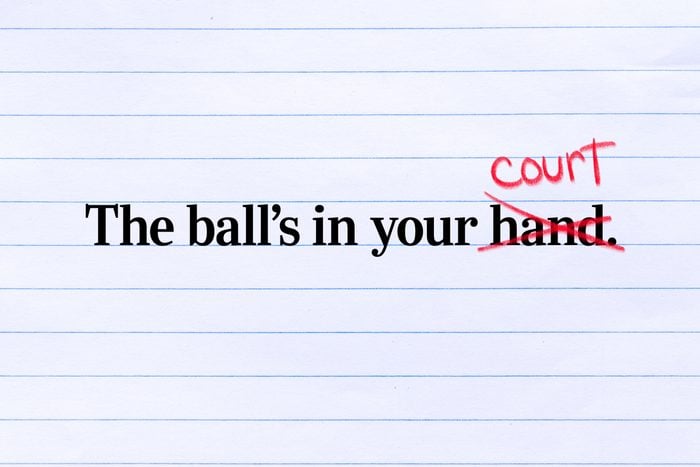
Court vs. hand
Right: The ball’s in your court
Wrong: The ball’s in your hand
What the idiom means: It’s your turn to make a move.
This is the craziest English grammar rule you probably didn’t know.
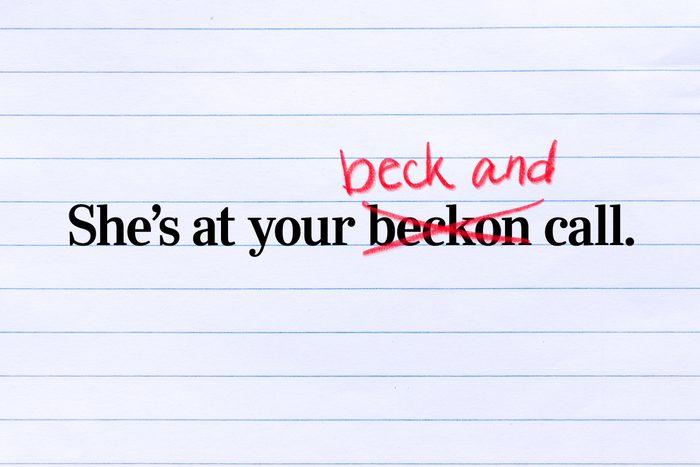
Beck vs. beckon
Right: She’s at your beck and call.
Wrong: She’s at your beckon call.
What the idiom means: She’ll be on hand to help you whenever you need it!
Check out these 12 grammar myths that your English teacher lied about.
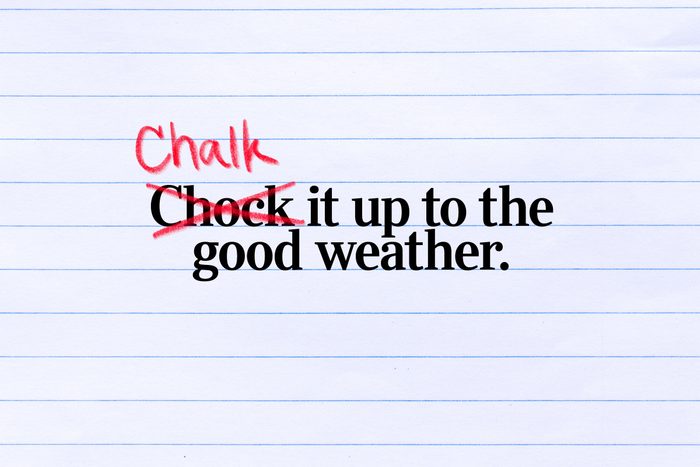
Chalk vs. chock
Right: Chalk it up to the good weather.
Wrong: Chock it up to the good weather.
What the idiom means: Chalk it up means crediting something with a reason.
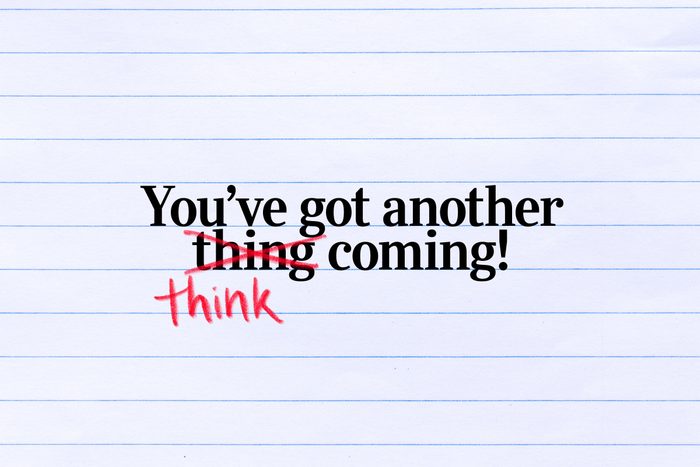
Think vs. thing
Right: You’ve got another think coming!
Wrong: You’ve got another thing coming!
What the idiom means: Watch out—if you think this is the result of your action, think again!
Spiff up your grammar with these free online grammar checks.

Scapegoat vs. escape goat
Right: Don’t use your friend as a scapegoat.
Wrong: Don’t use your friend as an escape goat.
What the idiom means: A scapegoat is someone who is blamed for something.
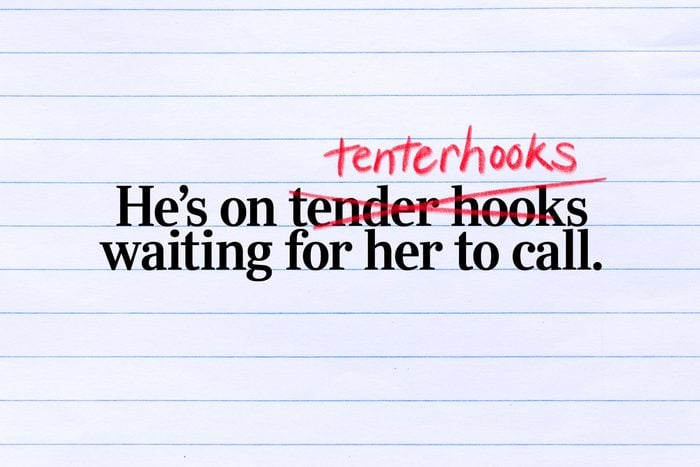
Tenterhooks vs. tender hooks
Right: He’s on tenterhooks waiting for her to call.
Wrong: He’s on tender hooks waiting for her to call.
What the idiom means: A tenterhook is a hook used for drying clothes, but to be “on tenterhooks” means one is impatient for something to happen.
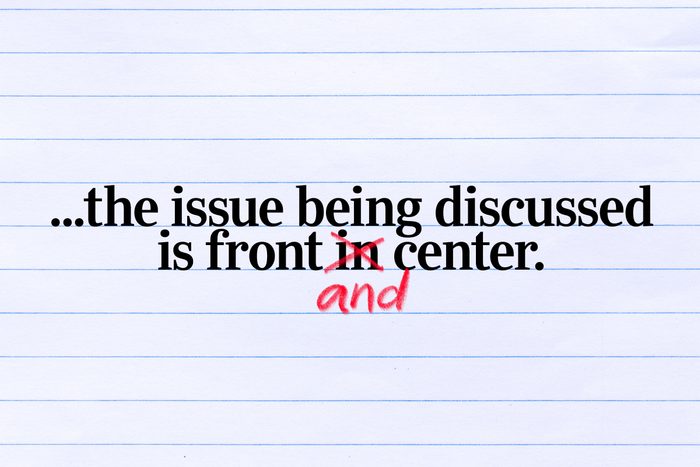
And vs. in
Right: Rest assured, the issue being discussed is front and center.
Wrong: Rest assured, the issue being discussed is front in center.
What the idiom means: The object of discussion is a top priority!
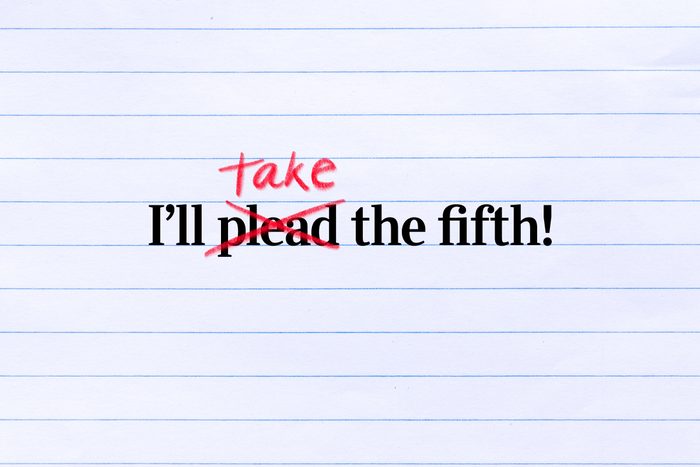
Take vs. plead
Right: I’ll take the fifth!
Wrong: I’ll plead the fifth!
What the idiom means: To “take the fifth” means to avoid expressing one’s guilt. Its usage is rooted in the Fifth Amendment of the United States’ Constitution, which indicates you don’t have to answer a question in court if it’s going to make you appear guilty. Test your knowledge of the Constitutional amendments.
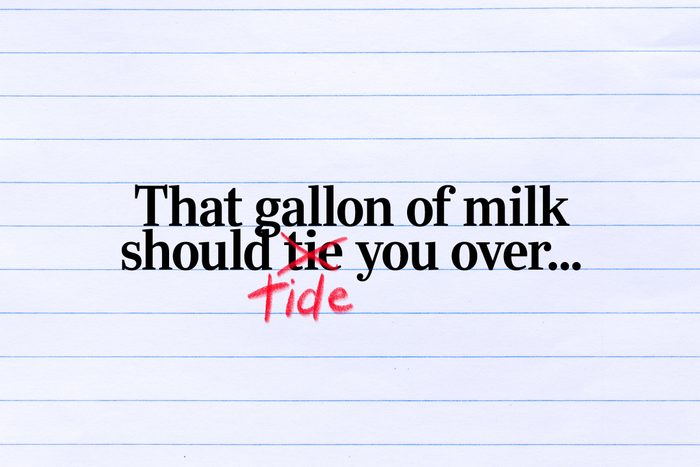
Tide vs. tie
Right: That gallon of milk should tide you over for the rest of the week.
Wrong: That gallon of milk should tie you over for the rest of the week.
What the idiom means: You should have just enough to last you until you can get more!
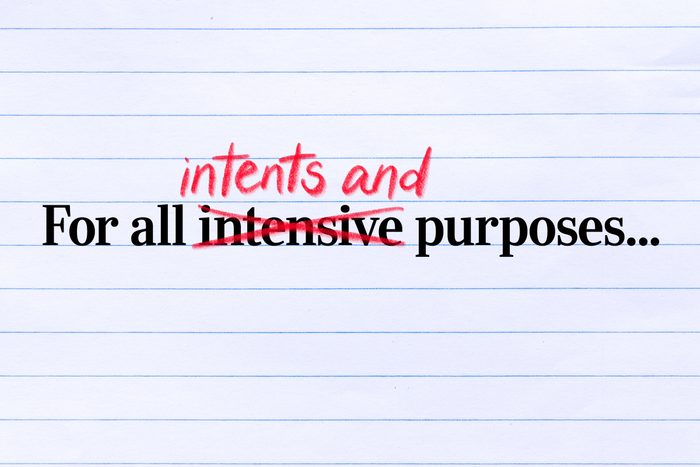
Intents vs. intensive
Right: For all intents and purposes, the library is the best place to find out-of-print books.
Wrong: For all intensive purposes, the library is the best place to find out-of-print books.
What the idiom means: For all intents and purposes means for practical reasons, or in every practical sense.
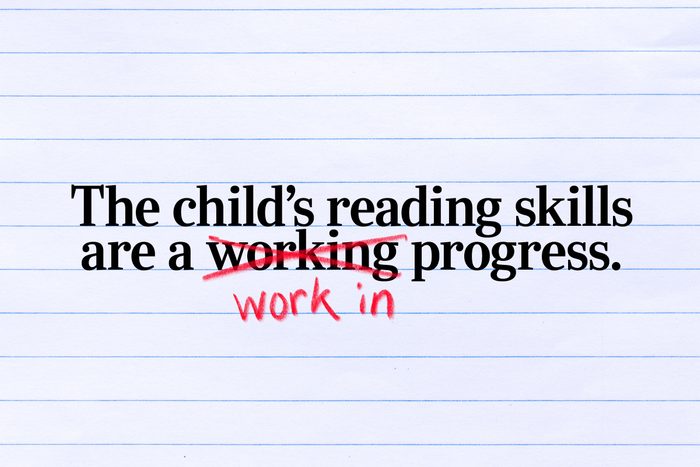
Work in vs. working
Right: The child’s reading skills are a work in progress.
Wrong: The child’s reading skills are a working progress.
What the idiom means: Work in progress is a way to say that there is room for improvement, but progress is being made!
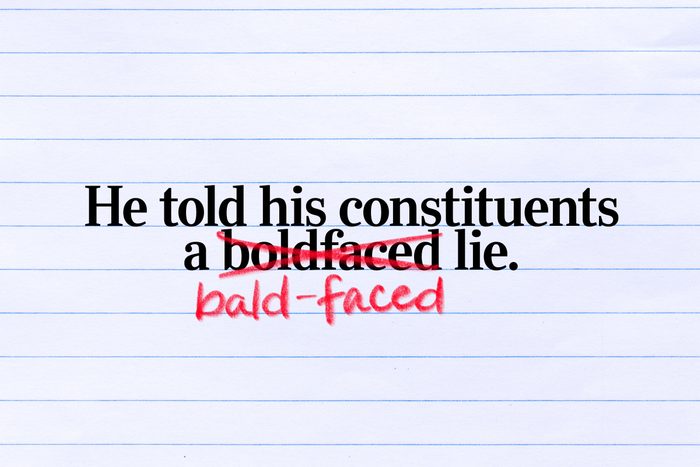
Bald-faced vs. boldfaced
Right: He told his constituents a bald-faced lie.
Wrong: He told his constituents a boldfaced lie.
What the idiom means: To say that someone is bald-faced means they’re shameless; to tell a bald-faced lie means they’ve told a blatant lie.
Find the best way to spot a liar.
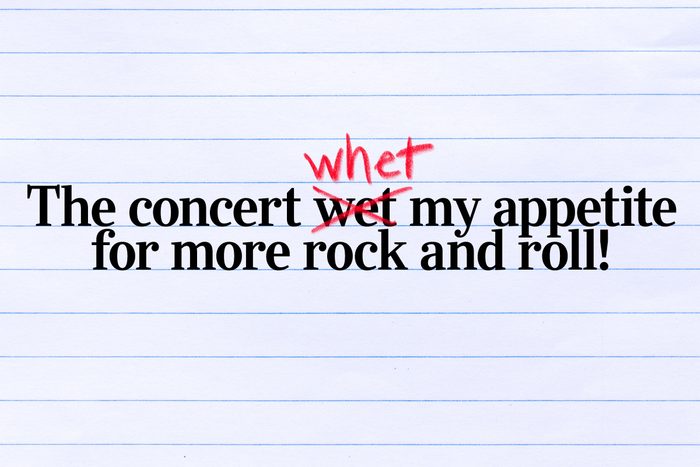
Whet vs. wet
Right: The concert whet my appetite for more rock and roll!
Wrong: The concert wet my appetite for more rock and roll!
What the idiom means: To whet means to sharpen one’s eagerness.
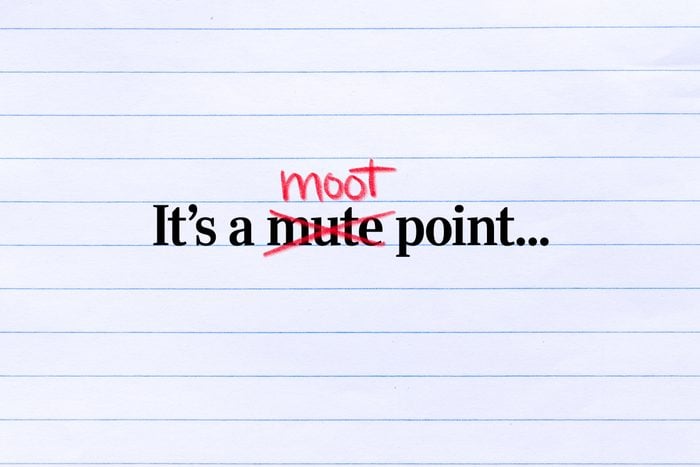
Moot vs. mute
Right: It’s a moot point to bring up an alibi after the trial.
Wrong: It’s a mute point to bring up an alibi after the trial.
What the idiom means: A moot point means that something is doubtful or adds little practical value to a situation.
Find out the difference between “than” and “then” before the grammar nerds come for you!
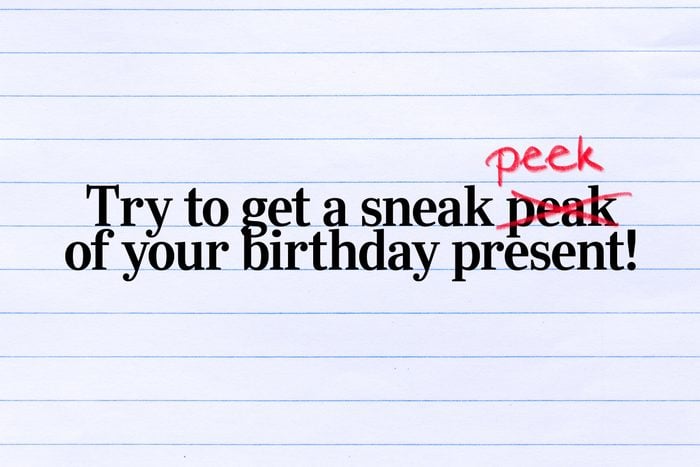
Peek vs. peak
Right: Try to get a sneak peek of your birthday present!
Wrong: Try to get a sneak peak of your birthday present!
What the idiom means: To sneak a peek means to look at something before you’re supposed to.
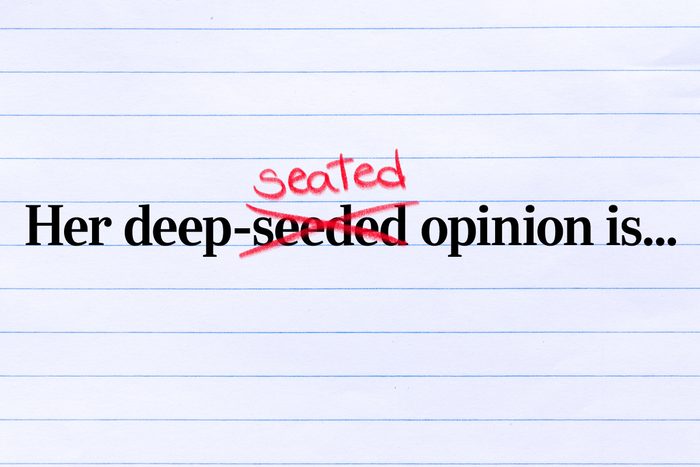
Seated vs. seeded
Right: Her deep-seated opinion is that they should move to Wyoming.
Wrong: Her deep-seeded opinion is that they should move to Wyoming.
What the idiom means: Deep-seated means that something is firmly established, such as an idea.
You might be surprised to find out why we say flip-flop instead of flop-flip.
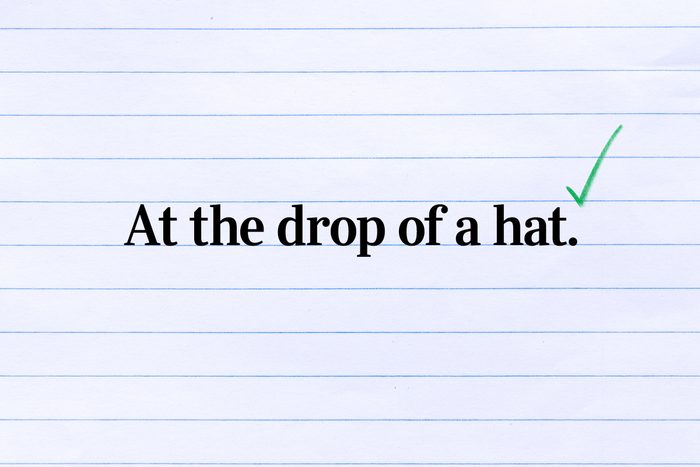
Idioms we’re getting right
Here are some everyday idioms we tend to use with more accuracy:
“At the drop of a hat,” which means very quickly.
“Hit the sack,” which means go to bed.
“Don’t judge a book by its cover,” which advises one to look deeper, beyond outside appearances.
“Don’t make a mountain out of a molehill,” which means don’t make issues bigger than they are.
“Beat around the bush,” which means avoid a certain topic.
“Steal someone’s thunder,” which means to take someone else’s praise for yourself.
“The last straw,” which is a further difficulty or annoyance on top of a series of others that finally make a situation unbearable.
“When in Rome…” which refers to the practice of acting like the people in your environment.
“What a pain in the neck,” which means what a hassle.
“Let sleeping dogs lie,” which means let past grievances go.
Check out the 70 words (and phrases) you’re probably using all wrong.